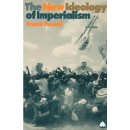 Review of
Jewish fake history Frank Furedi: New Ideology of Imperialism: Renewing the Moral Imperative (1994)
Review of
Jewish fake history Frank Furedi: New Ideology of Imperialism: Renewing the Moral Imperative (1994)
 Incredible that such rubbish was smuggled into a British University. —A tribe who should dwell alone
Incredible that such rubbish was smuggled into a British University. —A tribe who should dwell alone
'Pluto Series in Racism & Imperialism'
1994 book, written (one gathers) by a Hungarian Jew. I'll write this review trying to adopt what I take to be the Kevin MacDonald evolutionary approach.
This is supposed to describe the 'New Ideology' that arose, or was invented, after the 'collapse' of the Soviet Union in 1991.
Wikipedia and others have write-ups on this person, who seems not to be dead yet. I recommend a look to people who don't understand the corrosive part plays by Jews in the world.
Furedi of course refers to the Jewish coup in 1917 as the 'Russian Revolution'. Throughout this book there is not the slightest recognition that mass murder carried out by Jews (funded largely from Jews in the US) was an immense danger to the whole of Europe. His description of 'Nationalism' and the reactions to it is entirely through the racist lens of Jewish interest. This of course makes for inconsistencies which he avoids by the simple device of not mentioning them. For instance, Israel is not even indexed, nor the war with Britain over it.
The 'Nazis' of course are unspeakably bad—Furedi naturally promotes the fraud of the 'Holocaust'. On the other hand, what he calls African nationalism—he doesn't distinguish tribes; 'tribes' aren't even in the index—they are just another lot of goyim, but he pretends to take their side, since he doesn't like whites. Incidentally the ANC and South Africa's 'non-racial democracy' are more or less coeval with this book—readers of Kevin MacDonald will be unsurprised that the minerals controlled by Jewish interests, a significant piece of 'imperialism', are unmentioned.
Furedi relies somewhat on Hobson/Lenin on imperialism—he has to, as Marx was moribund or dead when modern imperialism was being constructed. Probably this sort of thing helps make his book shaky and uncertain, since there's no holy writ to follow.
It's striking how little evidence there is here, though of course if you're of the chosen race this is dispensable. Neither old imperialisms or new are measured in any way; who knows whether India benefitted from railways and tea plantations, for example? There's nothing on modern aspects—oil, for example. Amusingly, Furedi is silent on what would become known as neo-cons; Jews aren't even indexed, nor of course is ZOG; even Kissinger isn't mentioned.
Furedi's technique is to quote—he resembles Chomsky in this respect. News clippings, bits of books, and some Public Records are quoted from—but it's impossible to know how representative his samples are. In any period, someone can be found saying pretty much anything, after all. There's a troubling index reference to the PRO being in 'Kew Gardens' which suggests Furedi may have dispatched an underling to harvest quotations. It's amusing to see some of the civil servants' comments; Furedi seems unable to realise most of these were public school/Oxbridge types who'd been offered a job in the colonies and had no special interest in them, or in imperialism. I couldn't find any acknowledgement in his historical comments on the ramshackle nature of empires—protectorates, small islands, large islands, militarily-assembled jigsaws, and what-have-you. Legalities are not of interest to the religious-minded.
Furedi is mainly concerned with Africa—he was at SOAS and wrote on Mau Mau quite early on. He is unconcerned about population issues: Africa's population will soon approach one billion, probably twenty times its 1900 level. But that's no problem—the goyim can cope with that. There are some references to Islam; there's an endnote on the brutal actualities of African slave trading tucked away; there's nothing at all on Biafra/Nigeria or war crimes in Vietnam—a curious mixture. The explanation is that Furedi shoves in anything that opposes whites, and omits anything which casts light on atrocities and frauds by his fellow cultists—as per MacDonald's evolutionary theories.
If you want to understand ideologies or power structures or economic webs as they were 15 years ago, or now, or in the future, this book is a waste of time. Properly speaking, this isn't a book at all; if Furedi had something worth saying about the 'New Ideology' it could fit on half a page—better to waffle. This is a publish-or-perish thing, in effect part of a continuous assessment scheme. Unfortunately Kent University swallowed it.